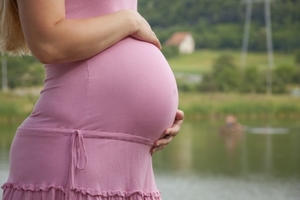|
In my experience, most of us women who don’t know much more about how our bodies function other than the fact that we get periods once a month and that those periods have something to do with baby-making. Part of the reason I am so passionate about fertility education is that I believe that all women deserve to know how their bodies really work. As women, we need the complete picture, not just snippets of information we picked up in school or on the internet. Here are some of the most common myths and misconceptions about our bodies; I hope reading this will leave you feeling a little more enlightened and hungry for more knowledge! 1. Women should get a period every 28 days. I thought I’d start with this one since it’s the most common myth that I come across. While it is true that many women have regular, 28 day menstrual cycles, that is not the only cycle length that is considered healthy. In fact, typical menstrual cycles can be between 23-40 days long. It’s also normal for an individual woman’s cycle to vary month to month by as much as 10 days. As such, cycle length alone normally doesn’t tell a woman if her cycle is normal or healthy. The best way to do that is for a woman to learn to chart her fertility signs, which are her body's physical symptoms of fertility.  2. Women can get pregnant any time. Unless you’ve done any research into trying to conceive, you may be surprised to discover that it’s not actually possible to get pregnant any time you engage in intercourse. Men are always fertile, but a woman’s fertility is cyclical. This means at a specific time during her menstrual cycle she is able to conceive, and at other times, she is not. Whether she is fertile or not depends on many factors, such as hormone levels, the presence of an egg, the quality of her cervical mucus, and more. When it comes to pregnancy, timing is very important. A woman can identify her fertile window by learning to chart her fertility signs and practicing natural family planning (NFP) 3. Women ovulate (release an egg) on day 14 of their cycle. This is a common misconception that is often repeated by medical professionals, and it’s very damaging (especially to the couple who is trying to conceive a child). While some women may ovulate on day 14 some of the time, it is by no means true for every woman or every cycle. Some women may ovulate around day 10, others around day 20, and still others may have irregular cycles and ovulate at varying times every cycle. Fertility cannot be reliably determined by counting days on a calendar – a woman’s window of fertility can be very accurately identified by recording her signs of fertility on a chart. It’s also important to note that a woman’s fertile window is longer than the actual day of ovulation. The time the average woman is able to conceive is about 6 days. The length of this window is calculated based on the lifespan of both the egg and a man’s sperm under ideal, fertile conditions. 4. Women can’t get pregnant while on their periods. Contrary to popular belief, it is possible for some women to be fertile during menstruation. While most women’s fertile windows occur around halfway through their cycle, ovulation (and thus, the fertile window) can occur earlier in the cycle, before a woman has finished her period. This is not the norm, but it’s certainly possible. The only way to know for sure when a woman’s fertile window is occurring is for her to track her fertility signs, giving her advance warning of ovulation.  5. Women can’t get pregnant while breastfeeding. After giving birth, a woman’s fertility is temporarily suppressed. The return of her fertility depends on a number of factors, including breastfeeding habits and family history. Some women may remain infertile throughout her entire breastfeeding journey or even beyond, while others may find their cycles and fertility return fairly soon despite continuous nursing. The only way to know if and when your fertility may be returning is to observe and chart your fertility signs. The best way to do this is to work with a qualified fertility educator/natural family instructor who can teach you how to recognize your fertility signs. Any other fertility myths or misconceptions you would like to see debunked? Interested in learning how to chart your cycles? Contact me and let me know! images courtesy of freedigitalphotos.net(Jomphong, artur84, adamr)
0 Comments
Your comment will be posted after it is approved.
Leave a Reply. |
For updates, new articles, upcoming events, and information about fertility, healthy relationships, and natural family planning, sign up for the newsletter below:
Categories
All
|
Wellspring Family Wellness
[email protected]
2024
This site and associated social media may contain affiliate links from which I earn a small commission
[email protected]
2024
This site and associated social media may contain affiliate links from which I earn a small commission

